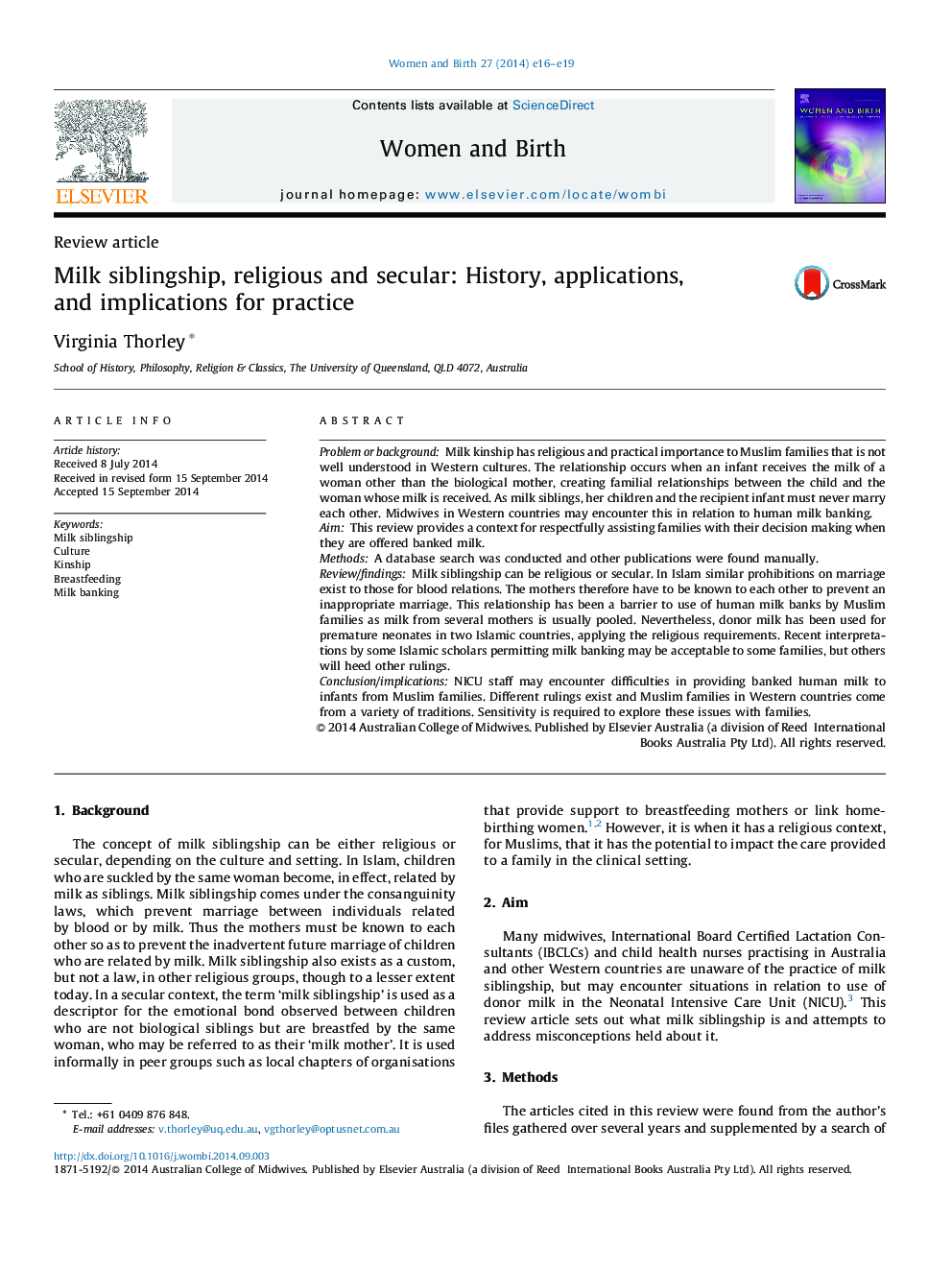| Article ID | Journal | Published Year | Pages | File Type |
|---|---|---|---|---|
| 2636006 | Women and Birth | 2014 | 4 Pages |
Problem or backgroundMilk kinship has religious and practical importance to Muslim families that is not well understood in Western cultures. The relationship occurs when an infant receives the milk of a woman other than the biological mother, creating familial relationships between the child and the woman whose milk is received. As milk siblings, her children and the recipient infant must never marry each other. Midwives in Western countries may encounter this in relation to human milk banking.AimThis review provides a context for respectfully assisting families with their decision making when they are offered banked milk.MethodsA database search was conducted and other publications were found manually.Review/findingsMilk siblingship can be religious or secular. In Islam similar prohibitions on marriage exist to those for blood relations. The mothers therefore have to be known to each other to prevent an inappropriate marriage. This relationship has been a barrier to use of human milk banks by Muslim families as milk from several mothers is usually pooled. Nevertheless, donor milk has been used for premature neonates in two Islamic countries, applying the religious requirements. Recent interpretations by some Islamic scholars permitting milk banking may be acceptable to some families, but others will heed other rulings.Conclusion/implicationsNICU staff may encounter difficulties in providing banked human milk to infants from Muslim families. Different rulings exist and Muslim families in Western countries come from a variety of traditions. Sensitivity is required to explore these issues with families.
